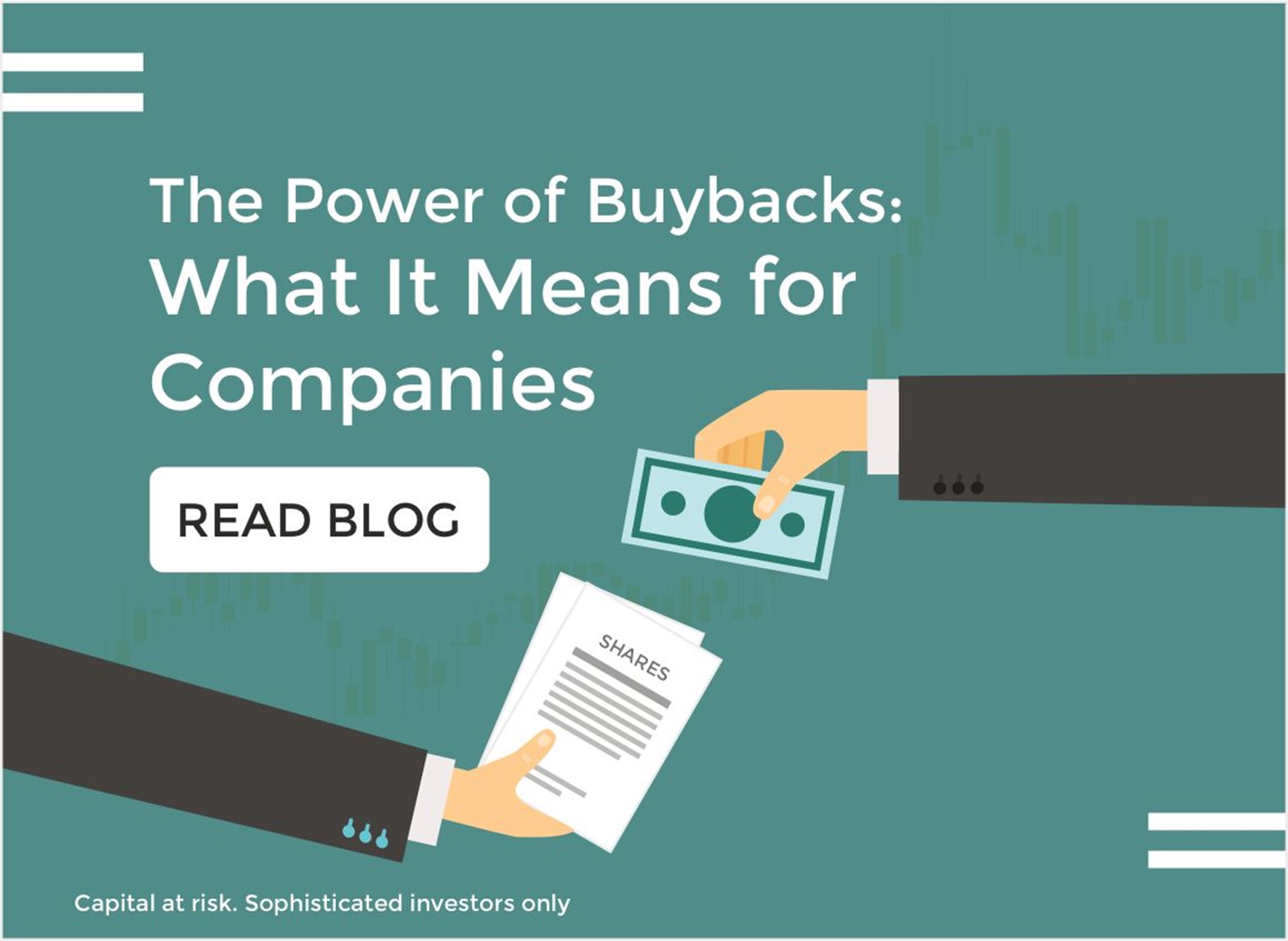The Power of Buybacks: What It Means for Companies
Posted:
In the dynamic landscape of corporate finance, buybacks have emerged as a significant tool for companies aiming to enhance shareholder value and strategically manage their capital structure. A buyback, or share repurchase, occurs when a company buys back its own shares from the marketplace, reducing the number of outstanding shares. This practice has gained popularity among major corporations, who view it as a means to boost earnings per share (EPS), increase stock prices, and deploy excess cash efficiently. Understanding the mechanics and motivations behind buybacks is crucial for investors, analysts, and corporate managers alike, as it offers insights into a company’s financial health and strategic priorities.
The power of buybacks extends beyond mere financial metrics; it encompasses market signaling, defensive strategies, and ethical considerations. When executed effectively, buybacks can signal confidence in the company’s future prospects, deter hostile takeovers, and mitigate shareholder activism. However, they also come with risks and criticisms, such as potential short-term stock price manipulation and reduced capital for long-term growth. This article delves into the intricacies of buybacks, exploring why companies engage in this practice, the benefits and risks involved, and the broader implications for corporate strategy and shareholder value.
What is a Buyback?
A buyback, also known as a share repurchase, is a corporate action where a company buys back its own shares from the market. This process reduces the number of outstanding shares, effectively increasing the ownership percentage of the remaining shareholders. Companies engage in buybacks to utilize excess cash, boost their earnings per share (EPS), and potentially raise their stock prices. By reducing the share count, the same level of earnings is spread across fewer shares, enhancing EPS and often leading to a higher market valuation.
Buybacks can be executed in several ways, including open market purchases, tender offers, Dutch auctions, and private negotiations. Open market buybacks involve purchasing shares directly from the stock exchange over time, offering flexibility in timing and pricing. Tender offers involve a company offering to buy back a specific number of shares at a premium price, while Dutch auctions allow shareholders to indicate the price at which they are willing to sell their shares within a specified range. Private negotiated buybacks occur through direct negotiations with major shareholders. Each method serves different strategic purposes and provides varying levels of control and efficiency for the company.
Reasons for Buybacks
The primary reason companies repurchase their own stock is to enhance shareholder value, which often means driving up the share price. When a company buys its own shares, it increases demand for the stock, which can lead to a higher price, benefiting all shareholders.
Maximizing shareholder value is a core objective for companies in corporate America. Companies strive to deliver the highest possible returns to their investors, which includes increasing the stock's value and returning cash to shareholders through dividends and buybacks.
Although dividends are a common method for returning cash to shareholders, buybacks offer several advantages:
- Directly Increase Share Prices: The main objective of a share repurchase program is to elevate the stock price. If the board believes the stock is undervalued, it’s seen as an opportune time to buy back shares. Investors often view buybacks as a sign of management’s confidence in the company’s future, as a company wouldn’t repurchase stock if it expected the price to fall.
- Tax Efficiency: While dividends are taxed as income, rising share values are not taxed until the shares are sold. Shareholders who hold onto their stock during a buyback benefit from increased share value without incurring immediate tax liabilities.
- Greater Flexibility Than Dividends: Companies that initiate or increase dividends must maintain these payments to avoid disappointing investors and potentially lowering the share price. In contrast, buybacks are typically one-time events, offering management more flexibility.
- Offsetting Dilution: Companies often issue stock options to attract and retain employees. When these options are exercised, the total number of shares outstanding increases, diluting existing shareholders' stakes. Buybacks can help counteract this dilution.
Benefits of Buybacks
Buybacks offer several advantages to companies and their shareholders, making them a popular strategy in corporate finance. Here are the key benefits:
- Increase in Share Price
- Boosting Demand: When a company buys back its own shares, it increases demand for the stock, which can drive up the share price. This immediate impact benefits all remaining shareholders by enhancing the value of their holdings.
- Market Signal: Buybacks often signal to the market that the company's management believes the stock is undervalued. This expression of confidence can attract more investors, further boosting the share price.
- Enhanced Earnings Per Share (EPS)
- Reduced Share Count: By reducing the number of shares outstanding, buybacks increase the earnings per share (EPS). With fewer shares, the same level of earnings is spread across a smaller number of shares, which can make the company appear more profitable on a per-share basis.
- Tax Efficiency
- Capital Gains vs. Dividends: Shareholders who benefit from rising share prices due to buybacks can enjoy tax advantages compared to receiving dividends. While dividends are taxed as income, gains from increased share prices are not taxed until the shares are sold, often at a lower capital gains tax rate.
- Flexibility in Capital Allocation
- One-Time vs. Recurring: Unlike dividends, which create an expectation for regular payments, buybacks are usually one-time events. This gives companies the flexibility to return cash to shareholders without committing to ongoing payouts.
- Adjusting Capital Structure: Buybacks can help companies optimize their capital structure by reducing equity. This can be particularly useful for companies looking to manage their debt-to-equity ratio or to utilize excess cash effectively.
- Offsetting Dilution
- Managing Stock Options: Many companies issue stock options as part of employee compensation plans. When these options are exercised, they increase the total number of shares outstanding, diluting the value for existing shareholders. Buybacks can help offset this dilution by reducing the number of shares in circulation.
- Defensive Strategy
- Preventing Hostile Takeovers: By reducing the number of shares available on the open market, buybacks can make it more difficult for potential acquirers to gain a controlling interest in the company, thus serving as a defensive measure against hostile takeovers.
- Reducing Shareholder Activism: Buybacks can also be used to manage shareholder activism by consolidating ownership and potentially buying out activist investors.
Risks and Criticisms of Buybacks
While buybacks can provide several benefits to companies and their shareholders, they also come with notable risks and criticisms. Here are some key points to consider:
- Short-Term Stock Price Manipulation
- Artificial Inflation: Buybacks can artificially inflate stock prices in the short term without reflecting the company's underlying business performance. This can mislead investors and create a disconnect between the stock price and the company's actual value.
- Management Incentives: Executives may be motivated to repurchase shares to boost the stock price and meet short-term performance targets, especially if their compensation is tied to the stock's performance. This can lead to decisions that prioritize short-term gains over long-term sustainability.
- Reduction in Available Capital for Growth
- Opportunity Cost: Funds used for buybacks are not available for other potentially value-creating activities, such as research and development, capital investments, or acquisitions. This can hinder the company's long-term growth and innovation.
- Underinvestment Risk: Companies focused on buybacks may underinvest in their core business, leading to stagnation or a decline in competitiveness over time.
- Increased Debt Levels
- Leveraged Buybacks: Some companies finance buybacks by taking on debt. While this can optimize the capital structure in some cases, it also increases financial risk, especially if the company faces downturns or if interest rates rise.
- Financial Fragility: Higher debt levels can make a company more vulnerable to economic fluctuations and reduce its financial flexibility in times of crisis.
- Perception of Lack of Better Investment Opportunities
- Negative Signal: A buyback might signal to the market that the company lacks profitable investment opportunities and does not see better ways to use its capital. This can be interpreted as a lack of growth prospects and can negatively impact investor sentiment.
- Missed Opportunities: By prioritizing buybacks over reinvestment in the business, companies might miss out on opportunities that could drive future growth and innovation.
- Impact on Employee Compensation Plans
- Stock Option Dilution: While buybacks can offset dilution from stock options, they can also lead to higher volatility in stock prices, affecting the value of employee stock options and compensation plans.
- Employee Morale: If buybacks are perceived as prioritizing shareholder returns over employee benefits and investments in the workforce, they can negatively impact employee morale and loyalty.
- Ethical Concerns
- Income Inequality: Critics argue that buybacks primarily benefit wealthy shareholders and executives, potentially exacerbating income inequality. This can lead to public backlash and reputational damage.
- Long-Term Viability: Overemphasis on buybacks can undermine the long-term health and sustainability of the company, as resources are diverted away from strategic investments and growth initiatives.
Conclusion
In conclusion, stock buybacks have become a popular strategy for companies to enhance shareholder value and optimize capital structure. By reducing the number of shares outstanding, buybacks can increase earnings per share, boost stock prices, and utilize excess cash efficiently. They also offer advantages such as tax efficiency, flexibility compared to dividends, and the ability to offset dilution from employee stock options, making them an appealing option for many corporations.
However, the practice is not without its risks and criticisms. Buybacks can lead to short-term stock price manipulation, divert capital from growth opportunities, and increase financial risk if funded through debt. Additionally, they may signal a lack of profitable investment opportunities and raise ethical concerns about prioritizing shareholder returns over broader stakeholder interests. Companies must balance the immediate benefits of buybacks with the need for long-term sustainable growth and consider their broader impact to ensure they contribute positively to the company's overall success.
Leverage ETPs by GraniteShares
Leverage ETPs by GraniteShares
| Product name | Ticker | ||
|---|---|---|---|
| USD | EUR | GBX | |
Disclaimer
This is a disclaimer stating that all trading and investing comes with risks. Always do your research and do not invest more than you can afford to spend. GraniteShares accepts no responsibility for any loss or damage resulting directly or indirectly from the use of this blog or the contents.
This blog does not constitute an offer to buy or sell or a solicitation of an offer to buy securities in any company. Nothing contained herein constitutes investment, legal, tax or other advice nor is to be relied upon in making an investment or other decision. No recommendation is made positive or otherwise, regarding individual securities or investments mentioned herein. Any summary list of risk factors does not purport to be a complete enumeration or explanation of the risks involved in a particular investment. Prospective clients must consult with their own legal, tax and financial advisers before deciding to invest. This email contains the opinions of the author and such opinions are subject to change without notice. The source of data is GraniteShares unless otherwise stated. No guarantee is made to the accuracy of the information provided which has been obtained from sources believed to be reliable. This email and the information contained herein is intended only for the use of persons (or entities they represent) to whom it has been provided. Past performance is not a reliable indicator of future results. The value of an investment may go down as well as up and can result in losses, up to and including a total loss of the amount initially invested. Investments may involve numerous risks including, among others, company risks, general market risks, credit risks, foreign exchange risks, interest rate risks, geopolitical risks and liquidity risks. Please note that GraniteShares short and leveraged Exchange Traded Products are for sophisticated investors.
GraniteShares Limited is contracted by GraniteShares Jersey Limited to provide operating and marketing services.

GraniteShares
GraniteShares

